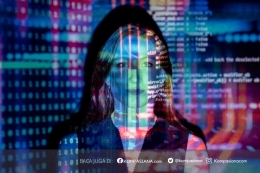How do emotions influence our attitudes and behavior ?
Emotions are physiological, behavioral, and psychological episodes experienced toward and object , person, or event that create a state of readiness.
For example, hearing about anarchy demonstration. Hearing about it drive your blood pressure to get higher, force your face showing some specific expressions, and make you can’t think clearly. Those all exhibit how you response toward an event, and this is called emotion. But it’s important to distinguish making the same between emotions and getting emotional. Why? Because emotions happen every minute even usually without our awareness . Emotions are not being angry only. Astonished, distressful, happy, etc are some kinds of emotions. So you couldn’t say, showing joy towards getting good grade is emotional. It happens naturally. It happens every minute as what I mentioned previously.
Now, how about attitudes and behavior?
Behavior is determined by two processes : cognitive and emotional process. In cognitive process, we include logical reasoning before we behave some ways. This process is conquered by attitudes. Attitudes are the cluster of beliefs, assessed feelings, and behavioral intentions toward a person, object, or event. Attitudes are judgments, whereas emotions are experiences. Attitudes consist of three main processes :
Beliefs
Belief is something we believe to be true. For example, I believe that wage cutting increases cost efficiency. Beliefs are based on past experience and other forms of learning.
Feelings
Feelings represent how we perceive something. For example, I think wage cutting is good. I perceive this good because my beliefs about it drive me to make positive feelings about wage cutting.
And Behavioral Intentions
After I recognized my feeling about wage cutting, I now have motivation to engage in particular behavior. For example, I will then propose this idea to my supervisor or to top management. That is influenced by my feeling about wage cutting.







